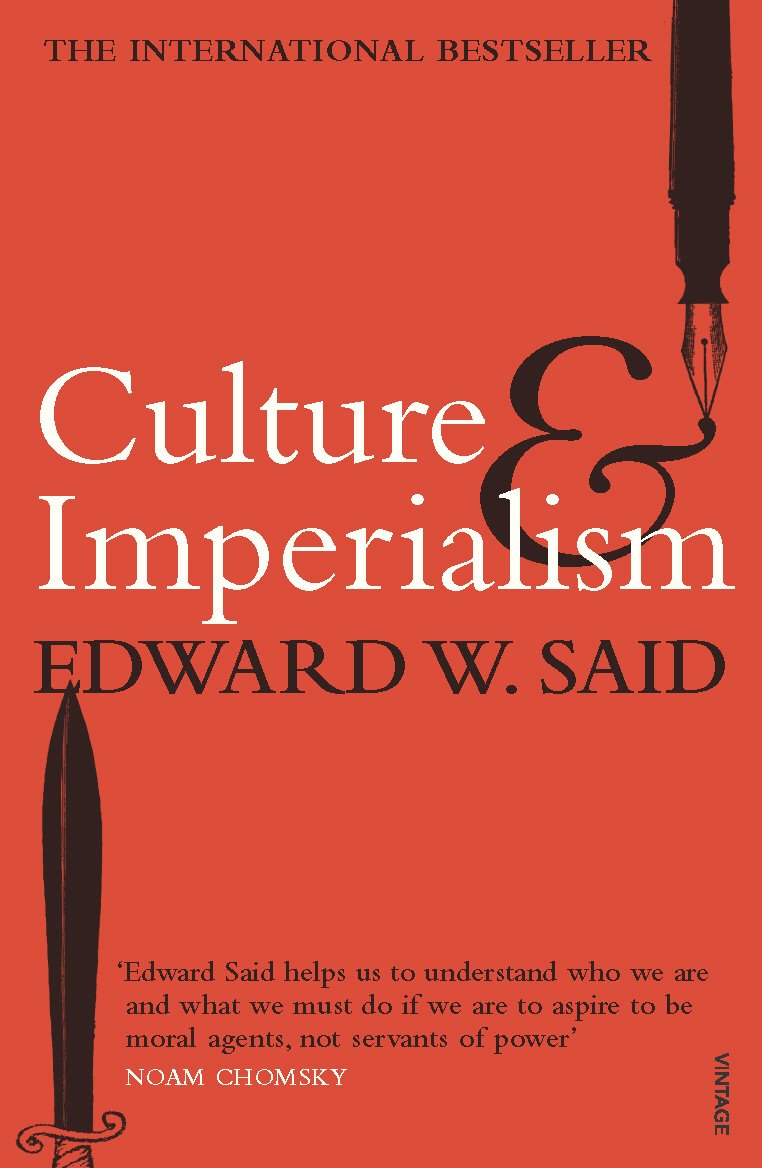About this deal
Our colonisers told us who to be, how to think and how to run the country years after they have left. For a superior analysis of Conrad's prophetic "Heart of Darkness", I'd recommend Sven Lindqvist's "Exterminate All the Brutes".
The result is a dense work that doesn't allow the reader either a wandering mind or the common practice of skimming. He analyses Verdi's opera Aida as an example of his thesis on the Imperialising nature of western culture because of factors like the fact that Verdi didn't present a thoroughly accurate version of Egyptian society in the opera. We gain an understanding on why the United States first supports Saddam, just to demonize him into an Arab Hitler (1991), yet to make friends with him again, just before his overthrown (2003). Equally depressing was the fact that a few of my American friends had admitted to me that they did not read much, if any, non-American literature.That's a project which has arguably become one of if not the dominant goals of the humanities in our age. Liberating oppressed voices is of course more complex than that but it it something I’m deeply thinking about. As a foundational text, Orientalism was controversial among the scholars of Oriental Studies, philosophy, and literature. As Said progresses, he explores the aftermath of imperialism and the rise of self-destructive nations in many of the former colonies. As a cultural critic, Said is known for the book Orientalism (1978), a critique of the cultural representations that are the bases of Orientalism—how the Western world perceives the Orient.
So half of the book is a (too detailed) deconstruction of Western 19th and 20th century novels by (mainly) Austen, Kipling, Conrad, and Camus. We also know and want you to know that we are a superior racial group, our intellectual abilities are beyond your comprehension and reach”. But we kind of still feel great about invading brown folks’ countries to change their governments, economies and cultural practices. In the past 15 years, we have seen a bit more of scholarship on these topics regarding art and culture of the Middle-east. He points out in his conclusion that we cannot pigeonhole ourselves as "Man", "American", "White", etc.
Survival in fact is about the connections between things; in Eliot’s phrase, reality cannot be deprived of the “other echoes [that] inhabit the garden. There ought to be no retreat into comfortable notions of the self or the community- for colonizer or colonized. There are four essays that consider Said’s career and criticism, in addition to Sprinker’s brief and informative introduction. It is not only the reading of books, it would turn out, but the picking of concepts, too, that are trivialized and added to universities as though students ‘have the choice to pick them out like they are looking at a menu’: Communism.
To the British and to the French in Algeria empire was embraced, each colony a necessary part of the nation enlarged, accepted with pride along with the seemingly unquestionable facts that the people of the colonies were both inferior and beneficiary to white Europeans. Edward Said’s reasoning may have developed some resentment in the way that the remnants of colonial and imperial ways of thinking are likely to still be present among us, and could even be within us as "receivers" of information. I could not help thinking about what Edward Said would make of social media today: Would he perhaps have thought that an app like twitter only reinforces the regulation of public discussion and mainstream culture?Each sentence in this book is crafted from a large vocabulary to convey exactly what the author intends. The book covers a range of topics, from the impact of colonialism on the works of Joseph Conrad and Jane Austen, to the ways in which Western films have depicted the East. One of the key messages here is that “power” is not really measured by the tanks and weapons but more importantly by literature and science. To answer such questions you must have independence and detachment of someone whose homeland js ‘sweet’, but whose actual condition makes it impossible to recapture that sweetness and even less possible to derive satisfaction from substitutes furnished by illusion or dogma, whether deriving from pride in one’s heritage or from certainty about who ‘we’ are.
He posits that peoples have multiple overlapping identities and shared heritage as compared to the divisiveness required by the imperial project. Edward Saïd is, predictably, scathing in his criticism of 'nativism' -as a reactive response to the deprivations of empire that seeks refuge in imagined pasts, and embraces the fundamental distinction between 'them and us'- and the shortcomings of anti-colonial nationalism: “What had once been the imaginative liberation of a people- Aimé Césaire’s ‘inventions of new souls’ - and the audacious metaphoric charting of spiritual territory usurped by colonial masters were quickly translated into and accommodated by a world system of barriers, maps, frontiers, police forces, customs and exchange controls. The novels and other books I consider here I analyze because first of all I find them estimable and admirable works of art and learning, in which I and many other readers take pleasure and from which we derive profit. The prose oscillated between elegance and a density that bogged me down at times (I couldn't help but laugh when, near the end, Saïd mocks the indecipherable jargon of modern academia; but, given his clarity and accessibility in other forums- lectures, interviews, speeches- he gets a pass).
It's quite apt that the book begins with a famous passage from Conrad's "Heart of Darkness": "The conquest of the earth, which mostly means the taking it away from those who have a different complexion or slightly flatter noses than ourselves, is not a pretty thing when you look into it too much.
 Great Deal
Great Deal 